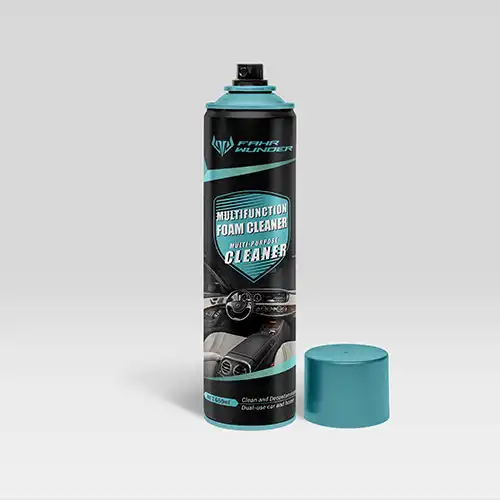Motor oil distributors are essential partners in the automotive supply chain because they connect factories with wholesalers, workshops, and fleet operators while ensuring reliable delivery and cost control. Their role goes beyond logistics: they optimize inventory, reduce downtime, and give procurement managers access to engine oil wholesale and motor oil wholesale channels at scale. By sourcing directly from bulk motor oil suppliers, businesses can secure consistent supply, competitive pricing, and flexible delivery schedules across multiple regions.
In global B2B procurement, efficiency is achieved when the right products arrive at the right time without supply disruptions. Motor oil distributors manage regional warehouses, coordinate with motor oil factories and lubricant suppliers, and provide value-added services such as custom packaging or OEM support. This reduces pressure on buyers who would otherwise face complex cross-border logistics and fluctuating market prices.
For car engine oil suppliers, lubricant factories, and wholesale automotive oil distributors, having strong distribution networks is a competitive advantage that directly improves supply chain performance. Businesses that partner with reliable engine oil distributors gain better access to high-quality lubricants, shorter lead times, and long-term stability in procurement strategies. In an industry where every delay affects productivity, motor oil distributors are the backbone of supply chain efficiency.
Motor oil distributors serve as the connecting link between manufacturers and buyers across the automotive sector. While motor oil factories and engine oil factories produce the core products, distributors handle the movement of goods through wholesale and retail channels. They bridge the gap between lubricant factories and end users, including workshops, fleet managers, and dealerships.
A key advantage of working with engine oil distributors is the ability to access a wide variety of products without having to coordinate with multiple factories directly. This is especially beneficial for international buyers who may need different grades of lubricants for diverse vehicle applications. Distributors consolidate supply from multiple motor oil suppliers and ensure that procurement managers can source everything from one reliable partner.
Inventory Management: Distributors maintain warehouse stocks to prevent shortages.
Bulk Procurement: Bulk motor oil suppliers allow businesses to reduce per-unit costs.
Regional Access: Localized distribution shortens lead times.
Flexibility: Custom packaging and OEM services support diverse procurement needs.
Through engine oil wholesale and motor oil wholesale channels, distributors ensure that buyers receive consistent supply, cost advantages, and reduced operational risk.
B2B buyers, including wholesalers, automotive workshops, and fleet operators, benefit from wholesale purchasing. Motor oil wholesale and engine oil wholesale models allow buyers to secure large volumes at competitive rates. This approach is supported by bulk motor oil suppliers who specialize in large-scale transactions, offering stable supply even when market demand fluctuates.
Car engine oil suppliers also rely on wholesale channels to deliver products to dealers and service centers. For procurement managers, partnering with distributors ensures that bulk orders are fulfilled quickly, without compromising on quality or brand consistency.
Engine oil suppliers: often specialize in lubricants for passenger vehicles, ensuring products meet consumer demand and OEM standards.
Motor oil suppliers: generally serve both passenger and commercial vehicles, making them essential for logistics fleets and heavy-duty applications.
By understanding these distinctions, procurement managers can choose the right partner to meet their specific requirements, whether for consumer retail or large-scale commercial needs.
At the foundation of the supply chain are the manufacturers: motor oil factories, engine oil factories, and lubricant factories. These facilities produce lubricants that meet international standards, OEM requirements, and industry certifications.
Factories work closely with wholesale automotive oil distributors to ensure their products reach global markets efficiently. By offering OEM and ODM production services, these factories also allow distributors and buyers to brand products under their own labels, which is an advantage for private-label distributors and regional suppliers.
Technical support and product training for workshops
Packaging customization to match regional branding needs
Assistance with regulatory compliance and certification
Flexible delivery schedules to match seasonal demand
For wholesale buyers and engine oil distributors, partnering with a lubricant supplier that provides these services creates long-term stability and market differentiation.
Reliability: Consistent product availability and dependable delivery schedules
Certification: Verified compliance with ISO, API, and OEM standards
Flexibility: Ability to handle bulk orders and custom requests
After-Sales Support: Technical assistance and warranty backing
Whether dealing with engine oil distributors or wholesale automotive oil distributors, buyers should prioritize partners who can adapt to global logistics and offer competitive pricing without sacrificing quality.
The demand for motor oil wholesale is increasing as automotive industries expand globally. Fleet operators, workshops, and distributors all rely on efficient supply chains to remain competitive.
Engine oil wholesale channels are evolving with the integration of digital procurement platforms and smarter inventory management systems. Wholesale automotive oil distributors now use technology to optimize logistics, track demand, and anticipate market fluctuations.
Looking ahead, bulk motor oil suppliers and lubricant factories are expected to expand their international reach, ensuring that buyers across regions can access high-quality lubricants without supply disruptions.
Motor oil distributors are at the center of supply chain efficiency in the automotive industry. They connect factories, lubricant suppliers, and wholesale buyers, ensuring reliable supply, cost control, and market adaptability. For B2B clients, choosing the right engine oil distributors or motor oil distributors can mean the difference between operational disruption and streamlined success.
From bulk motor oil suppliers to wholesale automotive oil distributors, these partners provide the infrastructure that supports global procurement strategies. As the automotive industry continues to evolve, businesses that invest in strong distributor relationships will maintain resilience, competitiveness, and growth.
At the end of the supply chain, brands like XBX, a trusted motor oil factory and lubricant supplier, continue to support distributors and B2B buyers worldwide with reliable production and global distribution networks.
Yes, engine oil wholesale orders can be quoted based on volume, packaging requirements, and delivery destinations. Bulk motor oil suppliers offer tiered pricing for large-scale procurement.
The MOQ depends on the distributor and product type. For wholesale automotive oil distributors, the minimum usually starts from pallet-level orders, while bulk motor oil suppliers may require container-size purchases.
Products are supplied both ways. Some buyers work directly with a motor oil factory or engine oil factory for OEM/ODM solutions, while others prefer motor oil distributors for flexible delivery and consolidated supply.
A lubricant supplier often provides value-added services such as technical support, private label packaging, regulatory compliance documentation, and customized shipping solutions.
eputable engine oil suppliers and distributors provide certifications such as API, ACEA, ISO, and OEM approvals to ensure compliance with international standards.
Yes, most motor oil distributors have established logistics networks to ship worldwide. They work with freight forwarders and regional warehouses to guarantee timely delivery for engine oil wholesale orders.
Yes, many car engine oil suppliers and lubricant factories offer OEM and ODM services, including customized packaging, private label branding, and tailored product specifications.
Bulk motor oil suppliers maintain regional inventory, partner with multiple lubricant factories, and use demand forecasting systems to ensure uninterrupted supply during peak seasons.
Buyers should provide product specifications (grade, viscosity, API/ACEA standard), required quantity, packaging format, delivery timeline, and destination port to receive an accurate RFQ from motor oil distributors.
Wholesale automotive oil distributors consolidate supply from multiple factories, provide faster delivery from local warehouses, reduce customs complexity, and allow buyers to mix product ranges in one shipment.
You can try searching
Hot Recommendations
Hot Products

DE-Rust Lubricating Spray | Bulk Orders and Custom Solutions for OEM ODM

Carburetor Cleaner | Professional Engine Carburetor Cleaner for OEM ODM Supply

Fahr Multifunction Foam Cleaner | Professional Automotive Cleaning Spray for OEM ODM Supply

Fahr Aerosol Spray Paint | OEM ODM Automotive Coatings for Bulk Orders and Custom